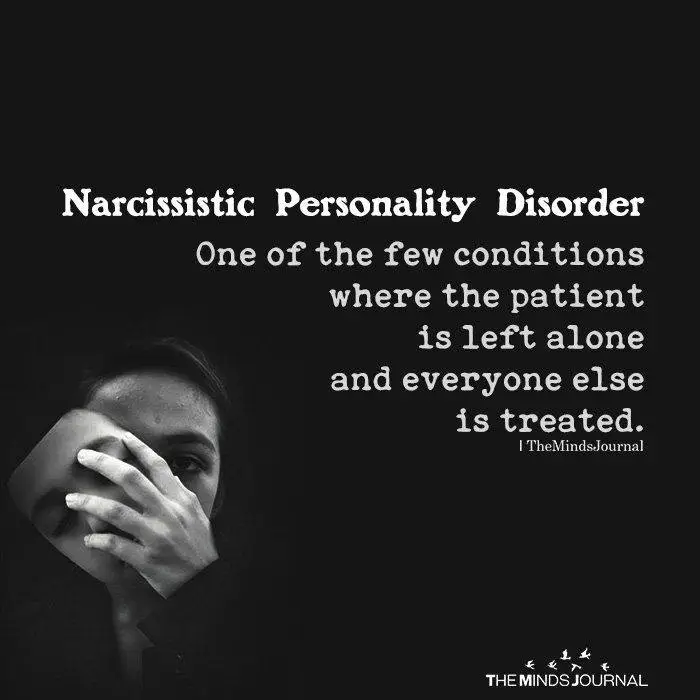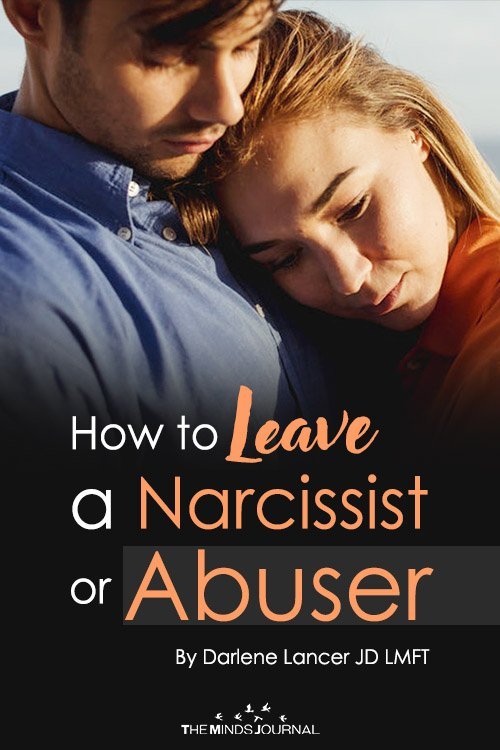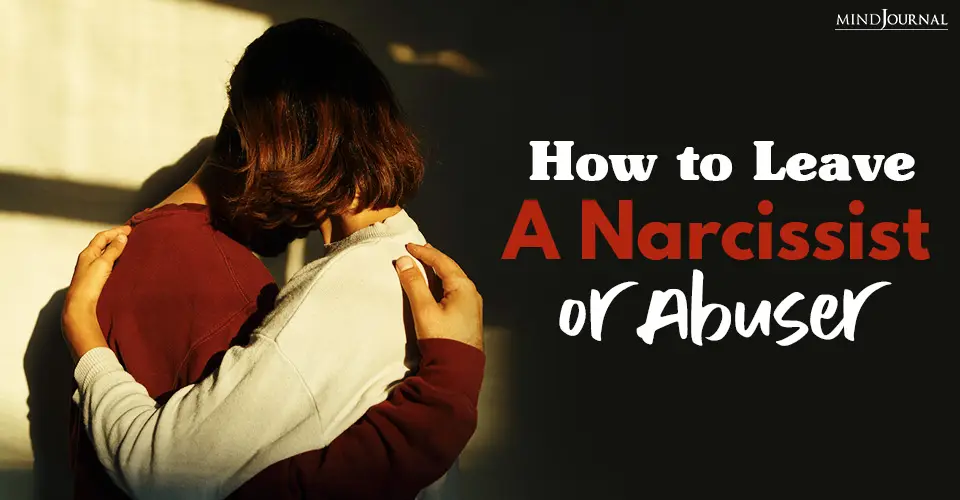Is it really easy to leave a narcissist when you have been in a relationship with them for quite some time? Unfortunately, more often than not when you want to leave a narcissist, it proves to be a massive challenge.
When we fall in love, it’s natural to become attached and form a romantic bond. But once in love with a narcissist, it’s not easy to leave, despite the abuse.
Although you’re unhappy, you may be ambivalent about leaving because you still love your partner, have young children, lack resources, and/or enjoy lifestyle benefits.
Outsiders often question why you stay or urge you to Just leave.
Those words can feel humiliating, because you also think you should. You may want to leave, but feel stuck, and don’t understand why.
This is because there are deeper reasons that keep you bonded unlike in other relationships.
Related: 5 Good Reasons To Leave a Narcissist
Why it’s Hard to Leave?
Narcissists, especially, can be exceedingly charming, interesting, and enlivening to be around. Initially, they and other abusers may treat you with kindness and warmth, or even love bomb you.
Of course, you want to be with them forever and easily become dependent on their attention and validation. Once you’re hooked and they feel secure, they aren’t motivated to be nice to you.
Their charming traits fade or disappear and are replaced or intermixed with varying degrees of coldness, criticism, demands, and narcissistic abuse.
(See “Narcissus and Echo: The Heartbreak of Relationships with Narcissists.)
You’re hopeful and accommodating and keep trying to win back their loving attention.
Meanwhile, your self-esteem and independence are undermined daily. You may be gaslighted and begin doubting your own perceptions due to blame and lies. When you object, you’re attacked, intimidated, or confused by manipulation.
Over time, you attempt to avoid conflict and become more deferential. As denial and cognitive dissonance grow, you do and allow things you wouldn’t have imagined when you first met.
Your shame increases as your self-esteem declines. You wonder what happened to the happy, self-respecting, confident person you once were.
Research confirms that it’s common for victims to attach to their abuser, particularly when there’s intermittent positive reinforcement.
You may be trauma-bonded, meaning that after being subjected to prolonged belittling and control, you’ve become childlike and addicted to any sign of approval from your abuser.
This is referred to as Stockholm Syndrome, named for hostages who developed positive feelings for their captors.
You’re especially susceptible to this if the relationship dynamics are repeating a pattern you experienced with a distant, abusive, absent, or withholding parent. The trauma bond with your partner outweighs the negative aspects of the relationship.
Studies show that victims of physical abuse on average don’t leave until after the seventh incident of violence.
They not only fear retaliation, but also the loss of the emotional connection with their partner, which can feel worse than the abuse.
Additionally, codependents, who are usually preyed upon by narcissists and abusers, often feel trapped and find it hard to leave any relationship. They can be loyal to a fault due to their codependency.

After You Leave
Narcissists and abusers are basically codependent. (See “Narcissists are Codependent, too.”) If you distance yourself from them, they do what it takes to pull you back in, because they don’t want to be abandoned.
Narcissists want to keep you interested to feed their ego and supply their needs (“narcissistic supply”). Being left is a major humiliation and blow to their fragile self.
They will attempt to stop you with kindness and charm, blame and guilt-trips, threats and punishment, or neediness, promises, or pleas―whatever it takes to control you so that they win.
If you succeed in leaving, they usually continue their games to exert power over you that compensates for their hidden insecurities.
They may gossip and slander you to family and friends, hoover you to suck you back into the relationship (like a vacuum cleaner).
They show up on your social media, try to make you jealous with photos of them having fun with someone else talk to your friends and relatives text or call you to promise to reform express guilt and love ask for help, or accidentally appear in your neighborhood or usual haunts.
They don’t want to be forgotten but keep you waiting and hoping. Just when you think you’ve moved on, you’re reeled back in. This may reflect their intentional spacing of contacts.
Even if they don’t want to be with you, they may not want you to let go or be with anyone else. The fact that you respond to them may give them enough satisfaction.
When they contact you, remember that they’re incapable of giving you want you need.
You might feel guilty or tell yourself that your ex really still loves you and that you’re special to him or her.
Who wouldn’t want to think that?
You’re vulnerable to forgetting all the pain you had and why you left. (See “Why and How Narcissists Play Games.”) If you resist their attention, it fuels their ambition.
But once you fall into their trap and they feel in control, they’ll return to their old cold and abusive ways. Only consistent, firm boundaries will protect you and disincentivise them.
Want to know more about how you can leave a narcissist? Check this video out below to know more about what happens when you leave a narcissist!
How to Leave?
As long as you’re under their spell an abuser has control over you. In order to become empowered, you need to educate yourself.
Come out of denial to see reality for what it is. Information is power. Read up on narcissism and abuse on my website.
If you’re unsure whether you want to leave, take the steps in Dealing with a Narcissist to improve your relationship and evaluate whether it’s salvageable.
Related: 9 Things You Can Do To Help Someone Healing From Narcissistic Abuse
Regardless of your decision, it’s important for your own mental health to redeem your autonomy and self-esteem. Take these steps:
1. Find a support group, including a therapist, a 12-Step group, like Codependents Anonymous (CoDA), and sympathetic friends―not ones who bash your spouse or judge you for staying.
2. Become more autonomous. Create a life aside from your relationship that includes friends, hobbies, work, and other interests. Whether you stay or leave, you need a fulfilling life to supplement or replace your relationship.
3. Build your self-esteem. Learn to value yourself and honor your needs and feelings. Develop trust in your perceptions and overcome self-doubt and guilt.
4. Learn how to be assertive and set boundaries.
5. Learn how to nurture yourself. This is a life skill and also insulates you from abuse. See “12 Tips to Self-Love and Compassion.” Get the Self-Love Meditation.
6. Identify the abuser’s defenses and your triggers. Detach from them. On my website, get “14 Tips for Letting Go.”
7. If you’re physically threatened or harmed, immediately seek shelter. Physical abuse repeats itself. Read about the cycle of violence and actions to take.
8. Don’t make empty threats. When you decide to leave, be certain you’re ready to end the relationship and not be lured back.
9. If you decide to leave, find an experienced lawyer who is a family law specialist. Mediation is not a good option when there is a history of abuse. See “Do’s and Don’ts of Divorce.”
10. Whether you leave or are left, allow yourself time to grieve, build resilience, and recover from the breakup.
11. Maintain strict no contact, or only minimally necessary, impersonal contact that’s required for co-parenting in accordance with a formal custody-visitation agreement.
After the struggling relationship with a narcissist it leaves you emotionally broken and often certain psychological and emotional disturbances trauma appear.
© Darlene Lancer 2019
Written by Darlene Lancer, JD, MFT. Originally appeared on Whatiscodependency.com









